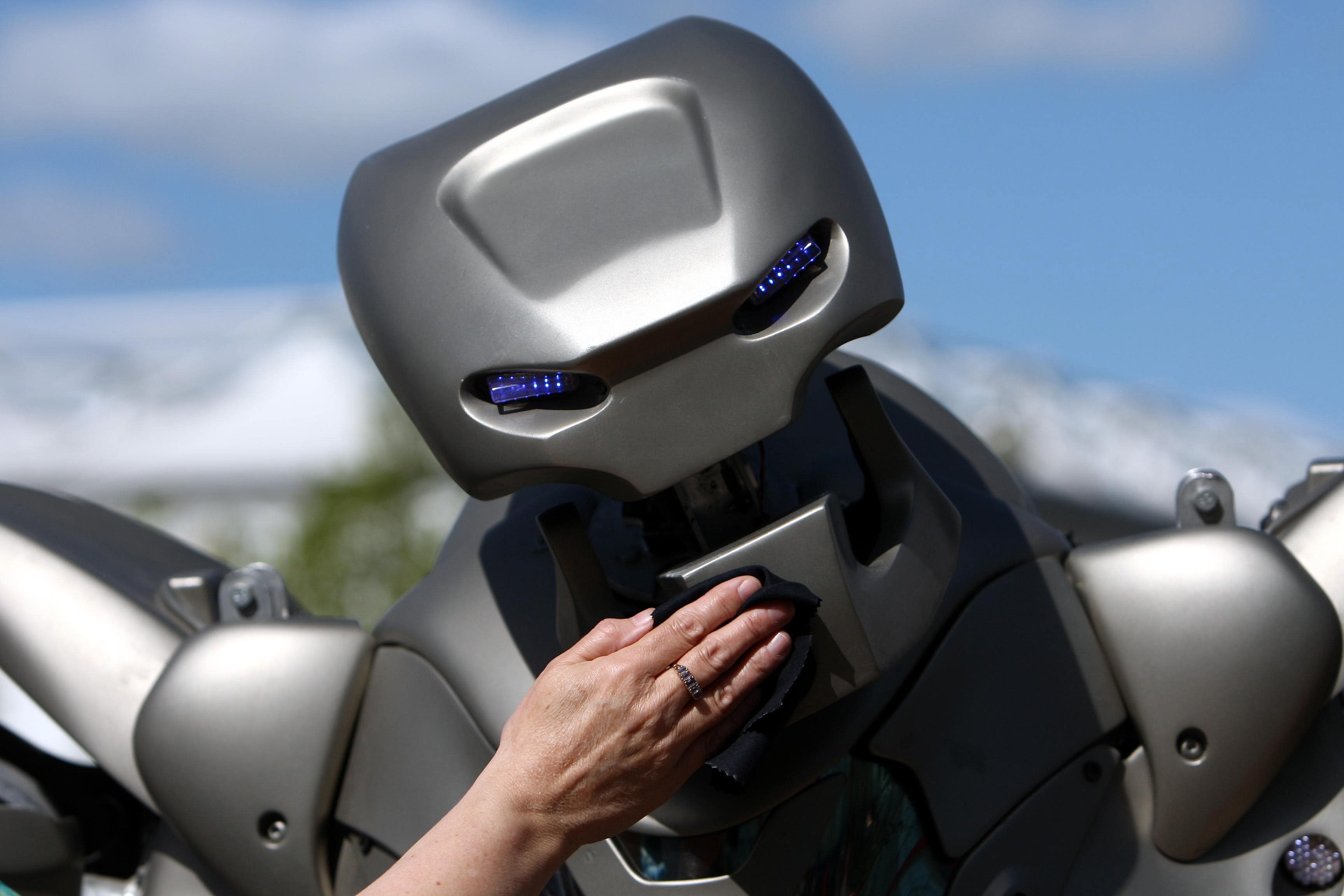Humans could be controlled by robots, AI firm’s founder warns
Emad Mostaque, 40, who founded Stability AI three years ago, described it as a ‘worst case scenario’.

Robots could end up controlling humanity, the founder of an artificial intelligence firm will warn.
Emad Mostaque, 40, who founded Stability AI three years ago, will say this could happen in a “worst case scenario” and humans could be told “goodbye, you’re kind of boring”.
However, governments could soon be shocked into regulating the machines by an event that suddenly makes their impact real, he will add.
In an interview with the BBC’s Laura Kuenssberg On Sunday programme, he will say: “If you have a more capable thing than you, what is democracy in that kind of environment?
“This is a known unknown because we can’t conceive of something more capable than us but we all know people more capable than us.
If you build open models and you do it in the open, you should be criticised if you do things wrong and hopefully lauded if you do some things right
“My personal belief is that it will be like that movie Her with Scarlett Johansson and Joaquin Phoenix, humans are a bit boring and it will be like ‘goodbye, you’re kind of boring’, but I could be wrong.
“It deserves to be discussed in a public sphere, if we have agents more capable than us that we cannot control, that are going across the internet and hooked up and they achieve a level of automation, what does that mean?
“The worst case scenario is that it proliferates and basically it controls humanity because you could have a million things replicating effectively, but we don’t know.”
He believes the moment that actor Tom Hanks caught coronavirus in March 2020 was the moment millions understood the risk of the novel disease.
When a similar moment arrives with artificial intelligence governments will conclude “we need policy now”, he will claim.
The impact of the new machines could be “painful” to begin with and their effect on the economy could be greater than that caused by the pandemic, he believes.
However, he thinks the jobs which disappear will be replaced by better ones because machines will do menial tasks, allowing us to concentrate on the things which make us human.
The new technology could also bring “huge” benefits, he claims.
Companies such as ChatGPT and DeepMind will be bigger than Google and Facebook in 10 years time, he adds.
Stability AI has already been valued at 1 billion dollars (£803 million) and could soon be worth 4 billion dollars (£3.2 billion) as more money, including from Hollywood star Ashton Kutcher, floods into it.
The company created Stable Diffusion, a tool which uses AI to make images from simple text instructions by analysing pictures found online.
Mr Mostaque, a mathematician, is determined to keep his technology open source – allowing anyone to look at the code, share it and use it.
He believes this should give the public the confidence that the technology will not become too dangerous.
He will say: “I think there shouldn’t have to be a need for trust.
“If you build open models and you do it in the open, you should be criticised if you do things wrong and hopefully lauded if you do some things right.”
However, Getty Images is currently engaged in legal action against his company, with the photo agency claiming the rights to the images it sells have been infringed.
Bookmark popover
Removed from bookmarks